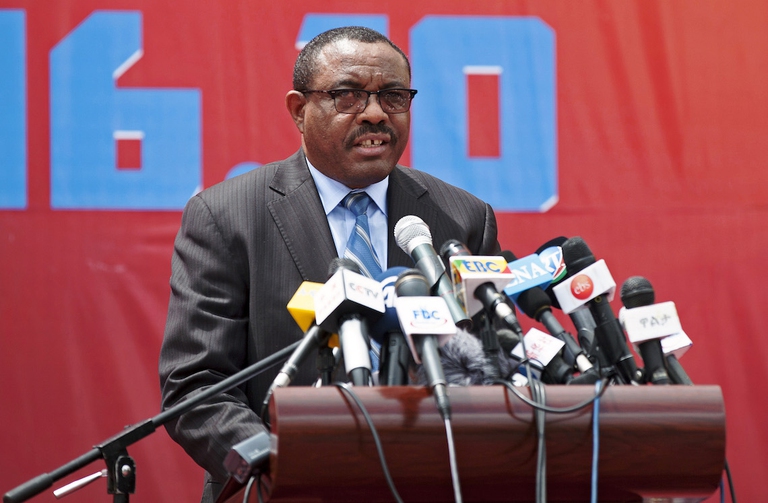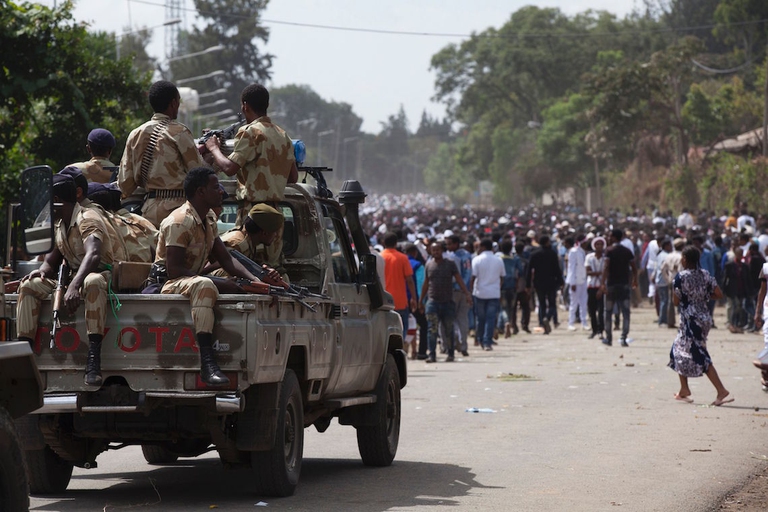
A report by Ember explains that in 2025 electricity generation from renewables (solar, wind and hydropower) surpassed that from fossil fuel sources.
Il primo ministro dell’Etiopia Hailemariam Desalegn ha annunciato l’instaurazione dello stato d’emergenza, dopo mesi di violente proteste.
Ethiopia’s government has declared a 6-month state of emergency. The decision has been announced by Prime Minister Hailemariam Desalegn on 9 October and represents an attempt to contain escalating anti-government protests across the country.
Oromo people, who make up at least one third of the country’s population, are leading the protests. Demonstrations have mainly taken place in the capital Addis Abeba and in some cases have given life to acts of violence, with foreign companies being burnt, public buildings being sacked and barricades being built in some districts.
Protests have peaked in late 2015, as Oromo people keep feeling marginalised by Tigray ethnic group, a minority group governing the country. What has triggered revolt was the project of expanding the capital’s urban area, which would represent a threat to Oromos’ ancestral lands.
Protests have been going on for months, so Desalegn decided to declare a state of emergency – for the first time in 25 years in Ethiopia. The government has blocked access to internet (especially to social networks) in order to prevent new protests from being organised. However repression has become more violent. Police forces have even shot at the crowd, exacerbating the yet tense situation. Hundreds of rebels have already been killed and 52 people died in October alone in violent clashes during an Oromo festival, according to official data provided by the government.
“They are not giving any space for dialogue,” said Beyene Petros, chairman of the Medrek opposition coalition. “They want total control on everything. People will not sit and accept this. It will provoke more anger and it might well be the last straw”.
Siamo anche su WhatsApp. Segui il canale ufficiale LifeGate per restare aggiornata, aggiornato sulle ultime notizie e sulle nostre attività.
![]()
Quest'opera è distribuita con Licenza Creative Commons Attribuzione - Non commerciale - Non opere derivate 4.0 Internazionale.
A report by Ember explains that in 2025 electricity generation from renewables (solar, wind and hydropower) surpassed that from fossil fuel sources.
The Tyler Prize, considered the “Nobel Prize for the Environment,” has been awarded to Toby Kiers, an American biologist working in Amsterdam.
Protests against the government were held throughout Ethiopia to call for political reforms. The police shot at the crowd resulting in a massacre.
Belgium is one of the countries most exposed to climate change. Dune–dikes are a solution to curb sea-level rise.
Between October 2024 and September 2025, the average temperature in the Arctic was 1.6 degrees Celsius higher than during the 1991–2020 period.
Undeclared conflicts of interest, paid authors, lack of transparency: one of the most cited studies on glyphosate, published in 2000, has been retracted.
The Copernicus service has released data for the first eleven months of 2025: global warming is set to come close to last year’s record.
The European Council and Parliament have reached an agreement on the European Commission’s proposal to deregulate new GMOs. But farming, organic agriculture, and environmental organizations are calling for it to be stopped.
The world’s second-largest producer has taken a historic decision. However, farms will have until 2034 to shut down.









